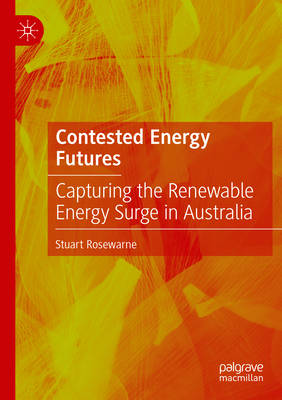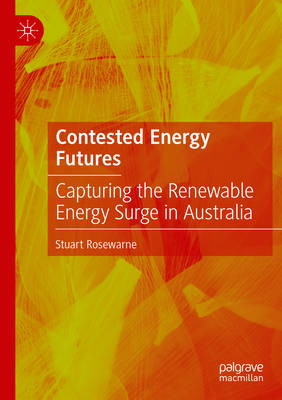
- Retrait gratuit dans votre magasin Club
- 7.000.000 titres dans notre catalogue
- Payer en toute sécurité
- Toujours un magasin près de chez vous
- Retrait gratuit dans votre magasin Club
- 7.000.0000 titres dans notre catalogue
- Payer en toute sécurité
- Toujours un magasin près de chez vous
Contested Energy Futures
Capturing the Renewable Energy Surge in Australia
Stuart Rosewarne
Livre broché | Anglais
213,95 €
+ 427 points
Format
Description
This book unpacks the politics of climate change in Australia in the context of successive conservative Coalition governments resisting any moves to mitigate emissions and as local communities and transnational corporations struggle with each other to control the transition to a sustainable energy future. As Australia has abundant clean energy resources in terms of solar and wind, the book offers a test case for study of the energy policy transition in the 21st century. It does so by using tools from political economy and sociology, teasing out public attitudes to renewable energy technologies and innovative infrastructure investments, unpacking the complex parameters of this historical debate, tracing the rise of household 'prosumers' and arguing the case for grassroots ownership of renewable infrastructure or 'energy sovereignty' - already pioneered by some isolated communities in Australia. The cultural and emancipatory benefits of cooperative ventures are well known. However, capitalism is not readily defeated by democracy. The promotion of individual households as 'virtual power stations', of 'smart technologies' and even of cryptocurrency into the energy transition innovative mix opens up ever new horizons for corporate control.
Spécifications
Parties prenantes
- Auteur(s) :
- Editeur:
Contenu
- Nombre de pages :
- 424
- Langue:
- Anglais
Caractéristiques
- EAN:
- 9789811902260
- Date de parution :
- 12-06-23
- Format:
- Livre broché
- Format numérique:
- Trade paperback (VS)
- Dimensions :
- 148 mm x 210 mm
- Poids :
- 521 g

Les avis
Nous publions uniquement les avis qui respectent les conditions requises. Consultez nos conditions pour les avis.






